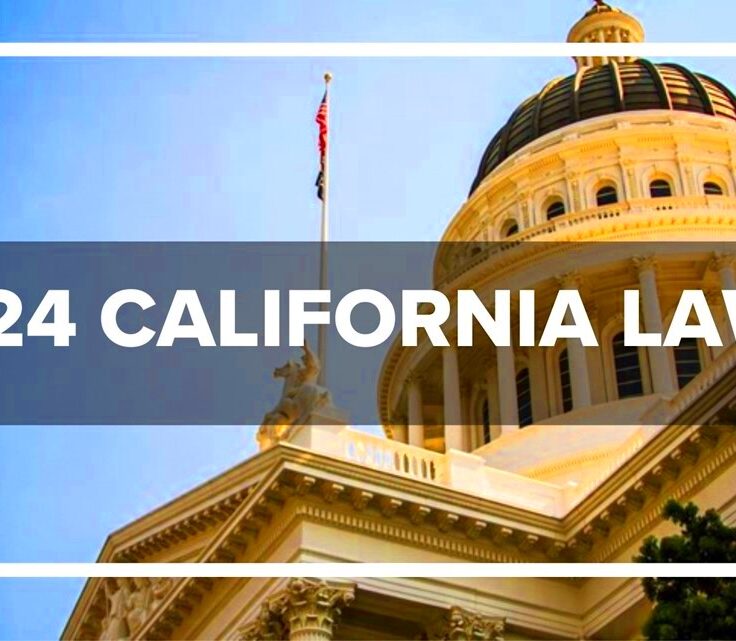Everything You Should Know About California Clean Slate Law 2024
The California Clean Slate Law 2024 is a significant legal framework designed to help individuals with past convictions reintegrate into society. This law aims to simplify the process of having certain criminal records cleared, making it easier for people to pursue job opportunities and housing without the burden of their past. With this initiative, California is taking a proactive step towards reducing barriers and promoting second chances.
Understanding the Purpose of Clean Slate Law

The main goal of the Clean Slate Law is to support individuals who have made mistakes in the past but are striving to turn their lives around. Here’s why this law is essential:
- Rehabilitation Focus: The law emphasizes rehabilitation rather than punishment, encouraging personal growth.
- Reducing Recidivism: By easing the path to employment and housing, the law aims to reduce the chances of re-offending.
- Promoting Equality: It seeks to create a more equitable society where individuals are not defined by their past mistakes.
- Supporting Families: Families of those affected benefit as individuals gain stability and can contribute positively to their communities.
Ultimately, the Clean Slate Law represents a shift towards a more compassionate approach to justice.
Eligibility Criteria for Clean Slate Law
Not everyone is eligible for relief under the Clean Slate Law. Understanding the eligibility criteria is crucial for individuals seeking to benefit from it. Here are the key requirements:
- Type of Conviction: Only certain misdemeanors and felonies qualify for expungement. Serious violent felonies may be excluded.
- Completion of Sentence: Applicants must have completed their prison sentence, parole, and probation.
- No Pending Charges: Individuals cannot have any pending criminal charges against them.
- Time Frame: A specified amount of time must have passed since completing the sentence, usually ranging from 1 to 10 years, depending on the offense.
If you meet these criteria, you may be able to take advantage of the Clean Slate Law and move towards a brighter future.
Process of Applying for Clean Slate Relief
Applying for Clean Slate relief can seem daunting, but understanding the steps involved can make the process smoother. Here’s a simplified breakdown of how to navigate the application:
- Gather Your Records: Start by collecting all necessary documents, including your criminal record and proof of completion of your sentence.
- Consult Legal Assistance: While it’s possible to apply on your own, consulting with a legal expert can provide clarity and help you avoid common pitfalls.
- Complete the Application: Fill out the appropriate forms for expungement or relief. Ensure that all information is accurate to avoid delays.
- File the Application: Submit your completed application to the court in the county where you were convicted. There may be a filing fee, so check beforehand.
- Attend the Hearing: In some cases, a court hearing may be scheduled. Be prepared to present your case and answer any questions the judge may have.
- Receive the Court’s Decision: After the hearing, the court will issue a decision. If granted, your record will be updated, reflecting the relief.
Following these steps will help you navigate the Clean Slate application process with confidence.
Impact of Clean Slate Law on Employment Opportunities
The Clean Slate Law significantly impacts individuals seeking employment. By allowing for the expungement of certain criminal records, this law opens doors that were previously closed. Here’s how:
- Increased Job Opportunities: Many employers conduct background checks, and a clean record can make candidates more attractive.
- Reducing Stigma: The law helps reduce the stigma associated with having a criminal record, allowing individuals to present themselves more confidently during job interviews.
- Encouraging Fair Hiring Practices: Employers are increasingly recognizing the importance of second chances, leading to fairer hiring practices.
- Career Advancement: With a clean slate, individuals can pursue careers in fields that may have previously barred them due to their records.
In essence, the Clean Slate Law serves as a valuable tool for individuals aiming to rebuild their professional lives and contribute positively to society.
How Clean Slate Law Affects Housing Applications
Securing housing can be challenging for individuals with a criminal record. However, the Clean Slate Law offers a pathway to improving housing opportunities. Here’s how it makes a difference:
- Reducing Barriers: Many landlords conduct background checks. With certain offenses cleared, individuals have a better chance of being approved.
- Boosting Tenant Rights: The law strengthens the rights of tenants with past convictions, promoting fair treatment during the application process.
- Encouraging Landlords to Reconsider: Some landlords may be more willing to rent to individuals with expunged records, leading to more options.
- Stability for Families: A stable home environment is crucial for families. The Clean Slate Law helps individuals secure housing, positively impacting their lives and those of their loved ones.
Overall, the Clean Slate Law plays a vital role in ensuring that individuals with past convictions can find safe and stable housing, ultimately contributing to their reintegration into society.
Common Misconceptions About Clean Slate Law
There are several misconceptions surrounding the California Clean Slate Law that can create confusion for those seeking relief. Let’s clear up some of the most common misunderstandings:
-
- Myth 1: The Clean Slate Law automatically erases all criminal records.
This is not true. The law only applies to certain eligible offenses and does not remove every conviction.
-
- Myth 2: You can apply for Clean Slate relief at any time.
Actually, you must have completed your sentence, including parole and probation, and wait for a specified time frame before applying.
-
- Myth 3: All convictions are eligible for expungement.
Not every conviction qualifies. Serious crimes, such as violent felonies, may not be eligible under the law.
-
- Myth 4: Applying for Clean Slate relief guarantees job or housing approval.
While it can improve your chances, approval ultimately depends on the employer or landlord’s policies.
-
- Myth 5: Legal help isn’t necessary for the application process.
Though you can apply on your own, having legal guidance can simplify the process and increase your chances of success.
By understanding these common misconceptions, individuals can navigate the Clean Slate Law more effectively and make informed decisions about their future.
Frequently Asked Questions
Here are some common questions people have about the California Clean Slate Law, along with clear answers to help clarify any doubts:
-
- What types of offenses can be cleared?
Generally, misdemeanors and certain felonies can be cleared, but serious violent felonies may not qualify.
-
- How long does the process take?
The timeline can vary. It usually takes several weeks to months, depending on the court’s workload and whether a hearing is needed.
-
- Is there a fee to apply?
There may be a filing fee, but fee waivers are available for those who qualify based on income.
-
- Can I apply if I live in a different state?
The Clean Slate Law applies to California convictions. If your conviction was in another state, you would need to follow that state’s process.
-
- What happens after my application is granted?
Your criminal record will be updated to reflect the relief, helping you move forward with a clean slate.
These FAQs address key concerns and help individuals feel more empowered as they navigate the Clean Slate process.
Conclusion and Key Takeaways
The California Clean Slate Law 2024 is a vital step towards giving individuals with past convictions a fair chance at rebuilding their lives. Here are some key takeaways to remember:
- Empowerment: The law empowers individuals by removing barriers to employment and housing.
- Process Matters: Understanding the application process is crucial for success. Gathering documents and seeking legal assistance can make a difference.
- Myths and Facts: Being aware of common misconceptions helps individuals set realistic expectations about what the law can achieve.
- Support System: Utilize community resources and legal aid to navigate the system effectively.
- Second Chances Count: This law reflects a commitment to rehabilitation and the belief that everyone deserves a second chance.
By taking advantage of the Clean Slate Law, individuals can pave the way for a brighter future and contribute positively to their communities.


